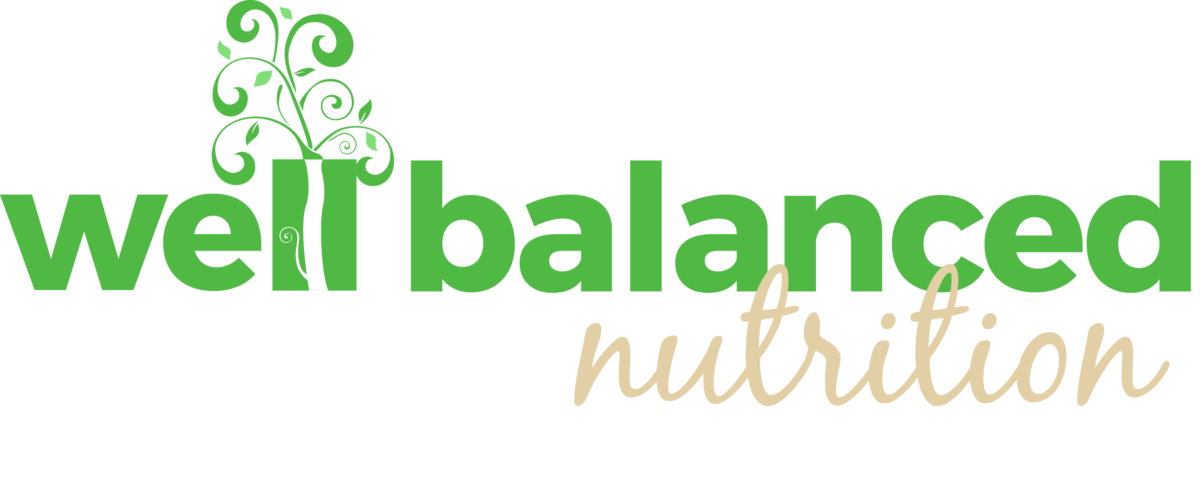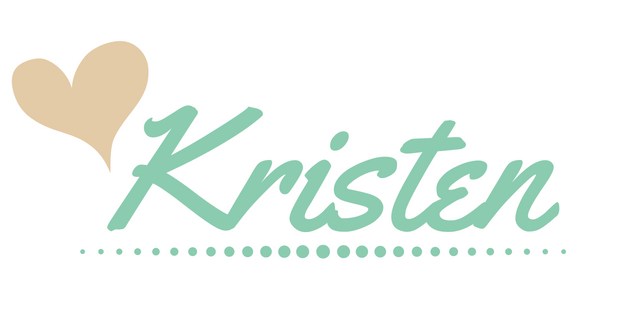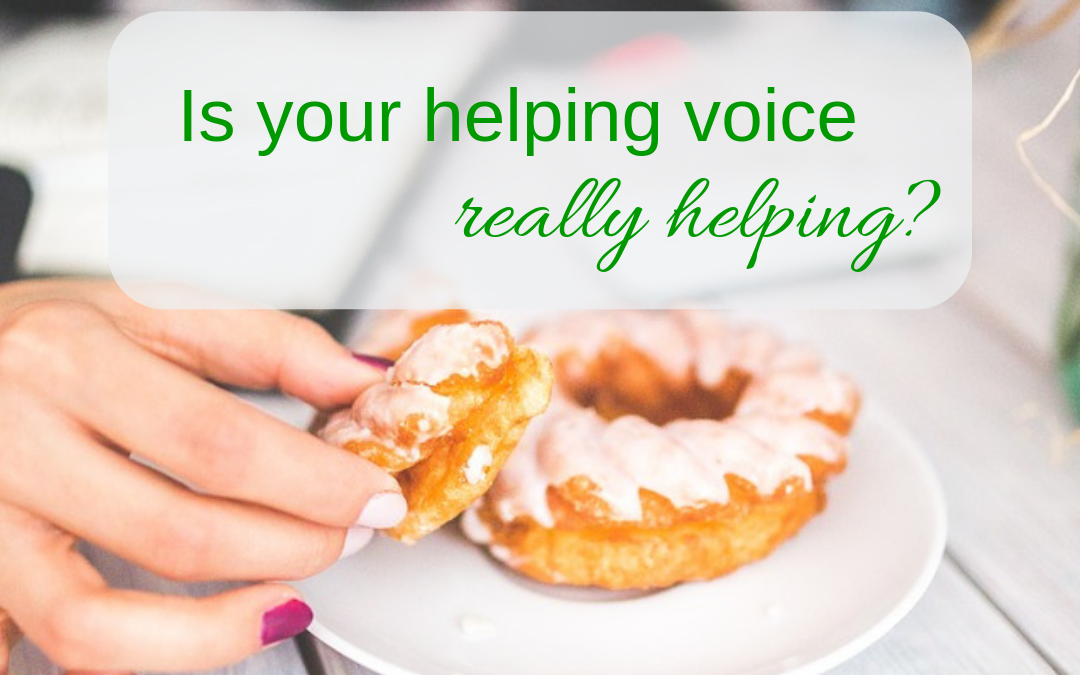
by Lucy | Feb 12, 2019 | Nutrition Questions Answered, Well Balanced Wisdom
You know that little internal conversation you have when staring at the buffet table, open bar or other indulgent food (or beverage) choice? There’s often opposing voices or thoughts going through our minds such as “it’s not that bad, “or “you know, you really don’t need that…”
You are normal
The good news, you are not crazy if you are hearing voices too! In fact, most of us have an inner helping and sabotaging voice. I think of it as friends versus an accomplice. Our friends help us when we feel down by saying comforting words that are uplifting and encouraging like this exchange with my best friend, Gretchen:
Me: I have a craving to quit my job, eat icing out of a plastic tub, and drink a margarita. Apparently, I’m feeling stressed…
G: Is it weird that we have all the same stress things? LoL
Me: Hahaha no, makes me feel less strange. And probably just confirms the soulmate best friend thing 😛
G: What’s got you so stressed?
Me: It’s the story I’m making up around people canceling or rescheduling last minute (clearly appointments with me don’t matter… Yada yada yada)
G: I’m sorry babe. I know that gets to you. You are amazing and important. Everyone overbooks and overdoes this time of year. That’s all it is.
See how Gretchen affirmed my feelings and gave me a chance to process through my negative thoughts? On the flip side, my thoughtful office mate, Richard, is more of an accomplice. When I told him that I was stressed out and craving sugar and/or booze he offered me animal crackers with icing and a beer or wine from the mini fridge. Not that he was purposely trying to sabotage me! On the surface, it sounds like those external stimulants or numbing agents are the cure to our problems, but we typically feel worse about ourselves after using comfort foods to “feel better.”
The answer is in you
I can tell you in moments of stress nothing outside of us can make what’s going on inside feel better. Sure, the chocolate may light up some happy hormones in your brain which could temporarily take away the sadness. However, often when we turn to food or a drink to deal with negative feelings those choices cause guilt or shame, which leads to the downward spiral of making more unhealthy choices.
Recently, while speaking with the client, she mentioned when she eats ice cream with her son in the evening or on weekends her sabotaging voice will say “it’s OK, you’ll do better tomorrow.” I asked, “what does your helping voice say in opposition?” She responded, “I tell myself ‘you know you’re already gaining weight and you don’t really want to gain more weight’.”
Did you notice her helping voice sounds super judgmental?
Is that helpful?
Instead, I asked, if her friend called and explained she was feeling upset and was about to eat a pint of Ben & Jerry’s ice cream “what would you say to a friend you know is trying to lose weight?” She had much more supportive words for her friend that did not include justifying or shaming her choice to eat ice cream.
Food for thought
What kind of stories is you’re sabotaging voice telling you? When do you notice yourself reaching for food or a drink to soothe your negative emotions?
How can you respond to these cravings as a friend instead of an accomplice?
Looking for a friendly dietitian to help you sort out your food cravings? We can help 🙂
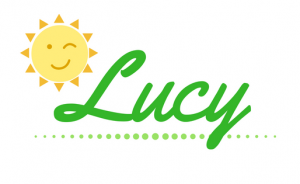
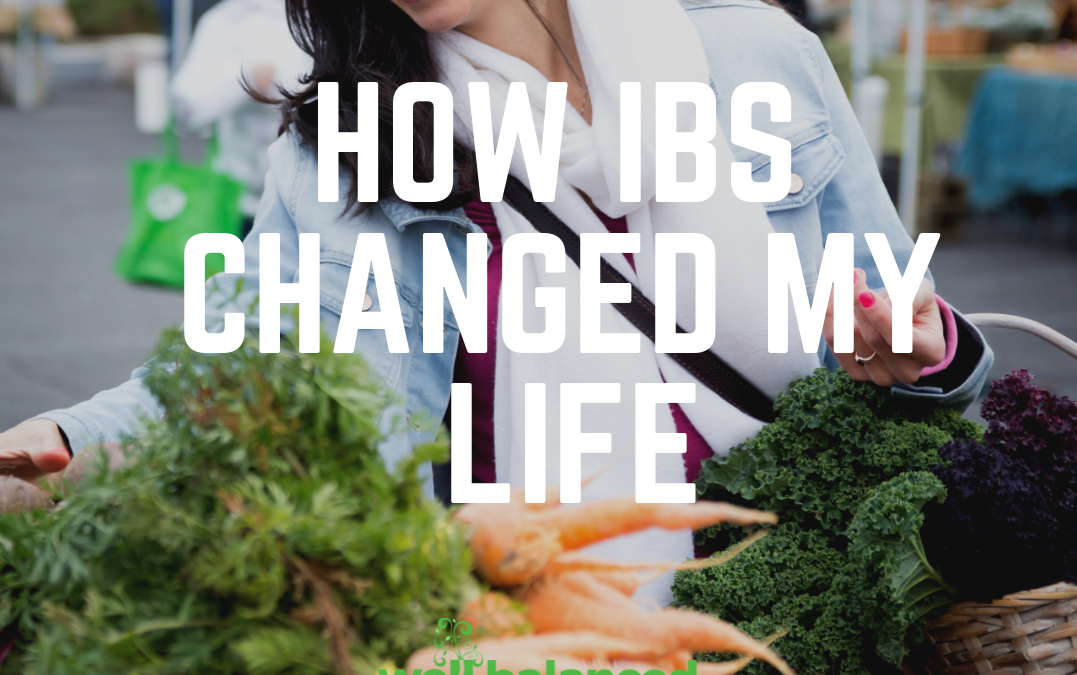
by Lucy | Aug 21, 2018 | Well Balanced Wisdom
Why me? It’s not fair. How did this happen? For 1 in 5 American’s suffering from irritable bowel syndrome (IBS), these are common thoughts and questions that cross the mind. Maybe after a weekend of eating out and enjoying food with friends and family suddenly, cramping, bloating, and discomfort takes over the gut and all you can do is curl up and wait until it passes.
Most of my life I was blessed to eat anything I wanted – I joke that I grew up on Ramen noodles, Pop-tarts, and a lot of chicken casseroles (including broccoli and cauliflower!).
Then came 2012
For 7 years prior to 2012, I was practicing a flexitarian diet, which for me included eating mostly plant-based foods such beans, tofu, peanut butter, and I even started eating lentils. Unfortunately, in November 2012 I contracted a stomach virus. It included a lot of pain and bloating for about five weeks and I lost weight, which at my size was not healthy. When that was over I tried to resume my normal diet. This consisted of salads, plenty of broccoli, apples, and other delicious colorful foods. The problem was some of those same symptoms I had during the virus stated to crop up unexpectedly in the middle of the day or after dinner. More pain. More bloating. But no more virus. I spoke with a good friend (also a dietitian) who recommended I look at eliminating the FODMAP foods – stands for Fermentable Oligosaccharides, Disaccharides, Monosaccharides, and Polyols. For anyone unfamiliar these are foods that have a particular kind of naturally occurring sugar, which are linked to some cases of IBS. She was right! When I stopped eating apples I stopped feeling awful after lunch, at least for a little while. Then by May 2016 while traveling up to Michigan to see my honey I hit a wall (not literally!), but I got fed up with feeling awful. I decided it was time to find out once and for all what was causing my gut issues. I went on an anti-inflammatory elimination diet. These come in all shapes and sizes – I gave up many common culprits including grains, dairy, fermented foods, and legumes. Gasp! At this point you might be thinking “what did you eat?!” For anyone that has done a Whole30 you know that fruits, vegetables, and meat/seafood become the bulk of what you are consuming. During that time, I discovered almond butter isn’t so bad and coconut flour is very versatile and delicious. Otherwise, I started to recognize and address my emotional relationship with food. Turns out, a lot of IBS symptoms are heavily influenced by the gut-brain connection and can be affected heavily by stress and hormones.
So many pity parties
During the first elimination I only committed to 21 days because I knew it was going to be challenging. I learned a lot about my habits, but I did it didn’t give me any conclusive information about what was causing my symptoms. Luckily, my lovely brilliant business partner, Kristen Norton, introduced me to MRT or mediator release testing option, which I did in February 2017. This blood test shows the inflammatory response your body has to 170 foods/chemicals. The test revealed some surprising information, which lead to a significant change in my diet and lifestyle for the next 18 months (and counting). In the beginning, when I first got my results I cut down to eating from a list of 30 approved non-inflammatory foods. Considering on average we consume 700 to 1000 foods and chemicals each week this was a very creative time for me. Who knew all the different ways you could prepare rice, sweet potatoes, tilapia, and carrots?
After the MRT results I was informed that alcohol is a huge trigger for IBS symptoms or flare-ups and was advised to stop drinking at least for the first month. Oh, the pity parties. I quickly learned that Friday was a huge trigger for having an alcoholic beverage. I kid you not, it wasn’t until October 13, 2017 that I was finally journaled my first Friday in 8 months that I didn’t crave an adult beverage on Friday night. I promise I don’t have a drinking problem, it was a groove in my brain (aka habit) formed starting in college and apparently became a way of life for the following decade. Not to mention, some of my other favorites I needed to stop eating like lettuce, soy-products, and Duke’s mayonnaise (darn paprika and lemon juice). I cried a lot those first several weeks. Yet, I was finally able to truly empathize with my clients who are doing even harder things in the name of their health and well-being.
What’s the lesson?
While this is still a hard subject for me to talk about, I feel so much better now than I did when I was eating in a way that wasn’t serving my body. Our mission at Well Balanced Nutrition is teach, empower, and connect women that want to feel confident in their food choices and bodies. My body was telling me that my old flexitarian diet was no longer serving me. Our bodies are talking to us all the time. The trick is learning to tune in, listen with compassion, and sometimes swim against the stream to make changes necessary feel our best.
Food for thought
What is your body telling you? The first step is tuning in. Next, I encourage everyone to spend time thinking about what better feels like. How will your life change when you feel better?
Lastly, you don’t have to do this alone. We can help.

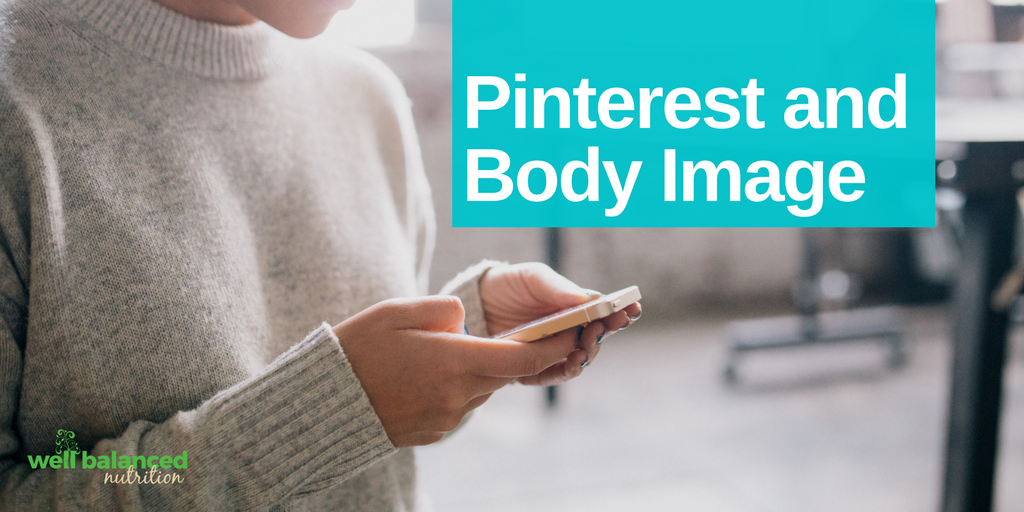
by Lucy | Feb 12, 2018 | Well Balanced Wisdom
Don’t get me wrong; I love Pinterest. I think that it is a brilliant place to share creative ideas. I truly cannot imagine life without this excellent resource; however, I’ve noticed Pinterest is sometimes a trigger for body dissatisfaction. Lately, I’ve been reading The Body Image Workbook by Thomas Cash, Ph.D. I am addressing and reevaluating my body relationship and body awareness. Yes, even us skinny gals can have body image issues.
[Sidebar: I’ve decided to fast from Facebook during the Lenten season to spend that time with my creator instead of browsing mindlessly. Since I’m not banning all social media, I’ve spent a little more time on Pinterest & Instagram (@WBN_RDs)]
In this workbook, I’ve learned we all have what the author, Dr. Cash, calls Private Body Talk. In our private body talk, we have stories running through our mind – often unconsciously – about how we look. He uses the word ugly, which I truly hope none of you are calling yourselves because you are uniquely beautiful. The book goes on to explain that we each have different triggers, assumptions, and beliefs about our body image. And why wouldn’t we… What with all the perfect flat tummies and perfect booties depicted on Pinterest, Instagram, and other social media outlets. I mean seriously, who are these people with perfectly sculpted abs?! We may think “what are they eating or doing to look that way?” Or “I need to get more strict about my diet so I can have a body like that too.”
Good news, there is a tool to help.
My favorite part of the workbook is the emphasis on mindfulness. It goes into a lot of detail on increasing our mindfulness specifically around body image stories. I modified an idea in the book and created a new tool to start to notice and address these negative body image stories. It’s the TTE method:
- Thought
- Trigger
- Emotional effect
First, is noticing the body image conversation or thought. Example: you look at a photo of yourself and think “Wow, look at that fat face.” Which may spiral into a barrage of negative thoughts about other aspects of your looks you do not like. The next step is to identify the trigger. In this case, it was looking at the picture. For many, simply stepping on the scale is the beginning of a downward spiral into self-sabotaging thought patterns. Such as, “why do I even bother? I’m always gonna be fat.” The last step is recognizing the emotional effect these thoughts have on you. It does not feel good or motivational when someone calls us mean names. That usually hurts and feels shameful. How is it different for you to speak like that to yourself? We’ve shared before how words matter. Whether spoken aloud or in our minds, these have a profound impact on our behaviors and choices.
Food for thought:
I don’t actually blame Pinterest for body image concerns; however, I recognize those pictures of all the perfect airbrushed bodies can lead to negative internal chatter. That’s when I choose to log off and get centered in my own truth:
“I value feeling good. I have a healthy mind and healthy body to match.”
What are your big triggers?
What’s your truth?
You are more than a number on the scale and you matter.
If you need someone to talk about body image or to make more healthy lifestyle changes, we are here to help. Just click here to start the conversation.
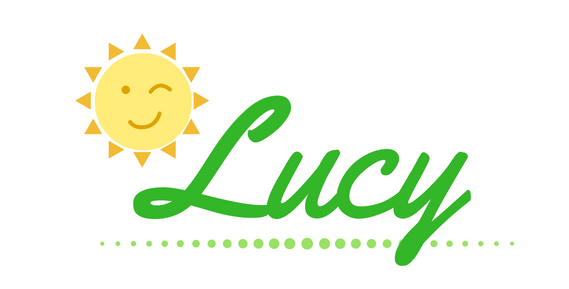
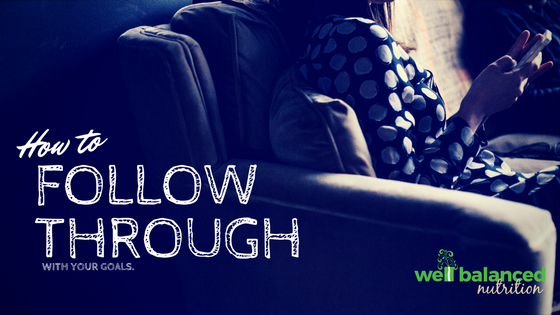
by Lucy | Aug 9, 2017 | Well Balanced Wisdom
“I’m going to do better,” you say. “I need to lose this weight and I’m starting today.” “I’m so out of shape, I’m going to join the gym.”
How many times have you said something like this to yourself without following through? Or maybe you did, but it only lasted a day, because things like this happen….
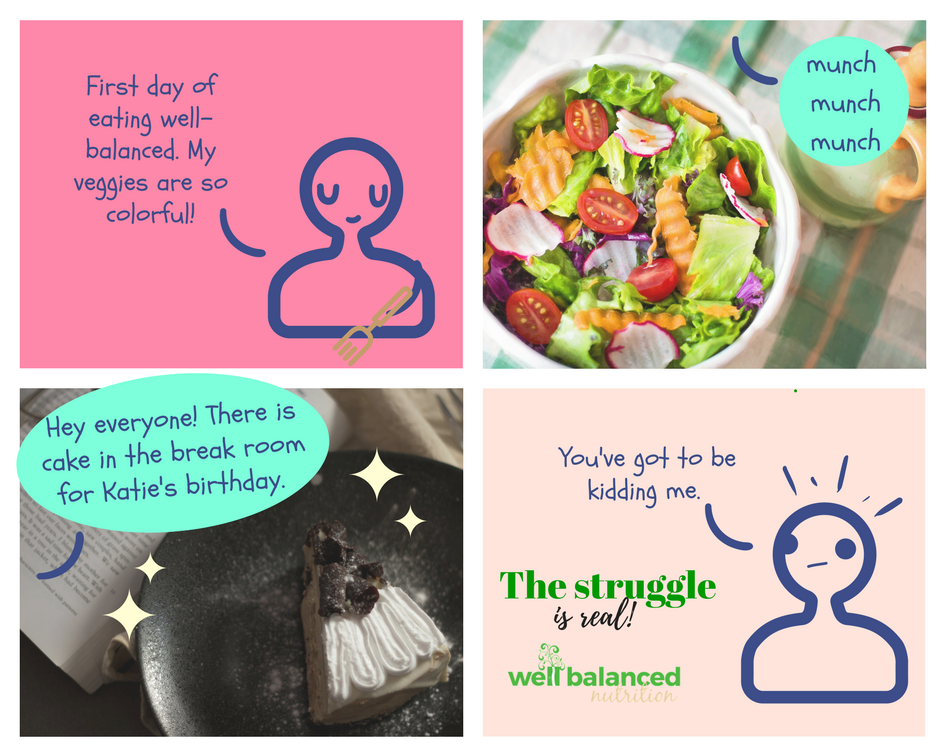
We all want to do better. It’s just not always easy getting there.
When clients come to see us at Well-balanced Nutrition it’s often not about what they need to do. They show up knowing what to do. They just can’t make it happen on their own. Maybe, just maybe, they think to themselves, there is a secret solution they can share with me so I can finally do this. That’s true, we have a few secrets to making healthy changes, but they might not be what you think.
Why is it so hard to follow through with our goals?
Because they come from within and nobody else knows about them. Many people respond to outside expectations and make them a priority, while their inner expectations fall quickly to the wayside. For example, you may want to meal prep on Sunday, but then you get asked to help someone move or your boss gives you a new assignment you want to get ahead start on. So you choose the activity that involves others’ expectations over fixing your meals for the week. Gretchen Rubin, the author of Better Than Before, classifies people like this as obligers. She says, “for Obligers, accountability is crucial. Key. Necessary! If you’re an Obliger, external accountability is the element that will allow you to follow through.” There you have it. One of our secrets to successful change.
So, are you an obliger?
If you could relate to the above scenario or if you are a person who really needs deadlines and late fees to keep you on top of things, there is a good chance that you also need similar accountability with your health habits. When people learn that they are an obliger, many are relieved. They realize it’s not their fault for letting themselves down, putting others first, nor lacking “willpower” to make a change. It’s just the way they are wired. So if you would call yourself an Obliger, instead of blaming yourself for not following through… again, this time set up some outside accountability that will ensure you make the change you desire.
Accountability: The obligation of an individual to account for their activities, accept responsibility for them, and to disclose the results in a transparent manner.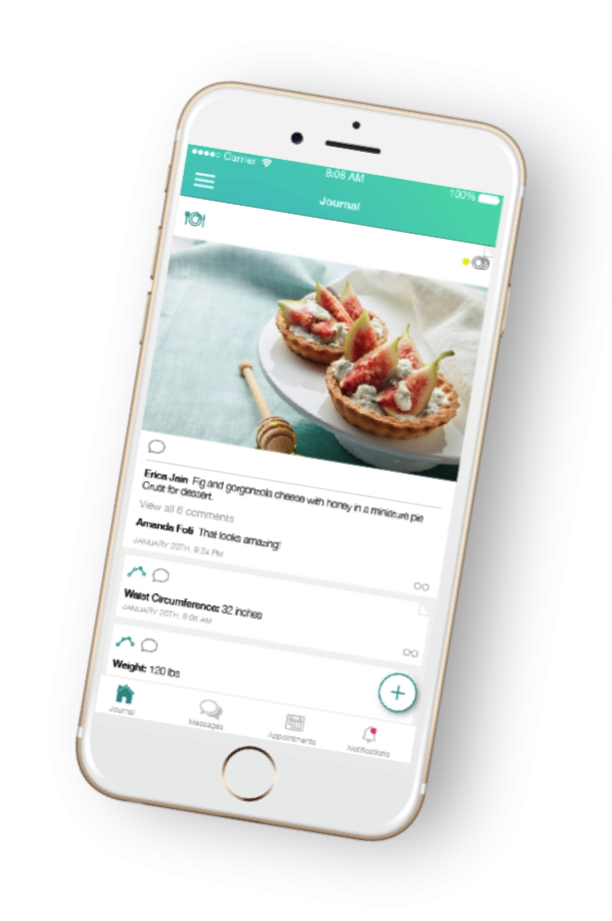
Which types of accountability will you try?
Here are some ideas:
The scale (regular weighing), your Well Balanced dietitian, your coworkers, your BFFs, your doctor, your food journal, your weight loss group, your fitness buddies, clothes you want to fit into…
There’s an app for that:
It’s never been easier to get accountability from your favorite dietitians here at Well Balanced Nutrition. 😉 We just launched an upgraded version of our
Healthy Habit Tracker and Obligers are going to love it! It allows you to track and share with us your:
- food journal
- exercise
- steps (syncs up with your fitbit)
- weight
- measurements
- Healthy Selfies or before and after shots
The best part is you can try using the Tracker for one month at no cost when you sign up in August (no tricks, contracts, or obligations – we promise!).
So, start today because we know how much you want to make that change and how hard it can be to do it on your own. Let us encourage you along the way. We bet you finally follow through with those goals!!
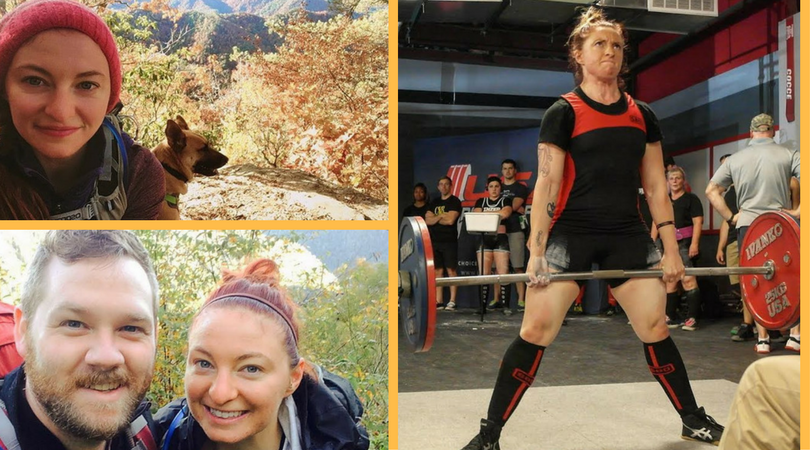
by Lucy | Jul 11, 2017 | Transformation Tuesday
I started working with Well-balanced Nutrition because…
I needed guidance on nutrition to help me meet the physical demands of my job and personal goals. As a hybrid athlete, I am constantly training in a variety of formats; from powerlifting to triathlon/marathon training, as well as teaching group fitness classes. I was also seeking help with weight loss and because I have a history of eating disorders and crash dieting and I wanted support to achieve my goals in a healthy, sustainable way. 
I knew I was on track when…
I was seeing a difference in my body composition. My weight fluctuates so even if my weight was down, I didn’t use the scale as the only measure of success. That being said, my body was (and still is!) feeling good and I was happy and comfortable with how I felt in my skin. I liked how my clothes were fitting and how my body was performing. I didn’t feel like I was carrying extra weight anymore and I also felt in control of my eating habits.
I’m still human and learned when I get off track I …
I have resources and support to help get me back on track. I no longer beat myself up for having slip ups but instead, acknowledge them, and move on.
The best strategy/technique I have learned on my well-balanced journey is…
Tracking my intake and using the HALT method when I get “snacky”. I use an app on my phone and it has been crucial for me. If I do not track my food intake, that is when I turn into a bottomless pit and overeat. It helps keep me accountable and it has taught me a great deal of discipline, in a good way. I feel like I have control. Along with that, the HALT method (Hungry, angry, lonely, tired) has taught me to pay attention to how my body is feeling. If there was a way to throw a “B” in there for BORED, that was certainly a big reason for why I would over eat. Learning to supplement those emotions with something other than food was a big help for me!
I really want the tribe to know…
There is no one RIGHT way to do something. Everybody is going to find something that works for them and that’s what matters. If you want to go paleo and eat clean, more power to you. If you are like me and find that tracking macros fits your lifestyle, then get down with your bad self! I want everyone to know that every BODY has different needs and different approaches to achieving success. Don’t worry about what everyone else is doing and find something that works for you.
Are you ready to make a transformation like Rebecca? Contact us today to set up your own personal wellness adventure.


